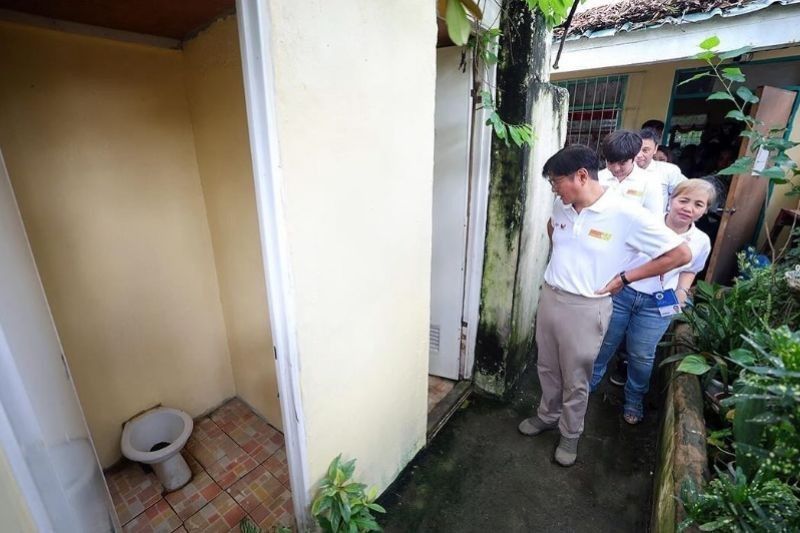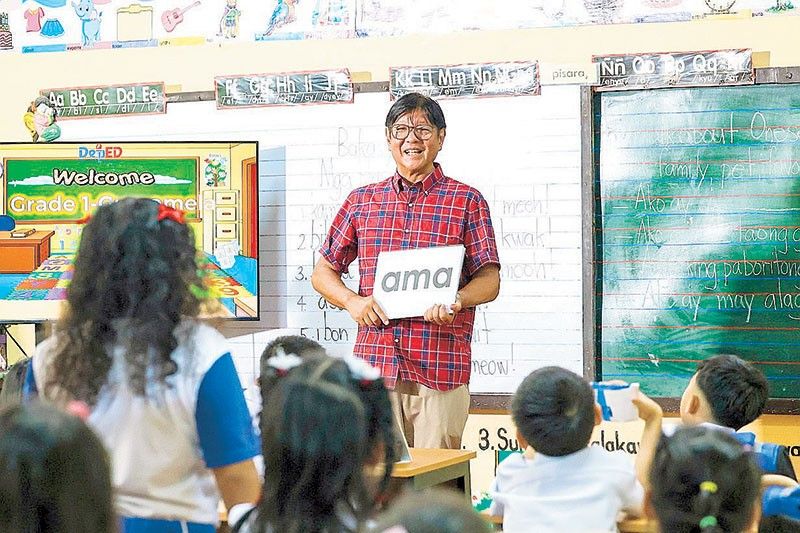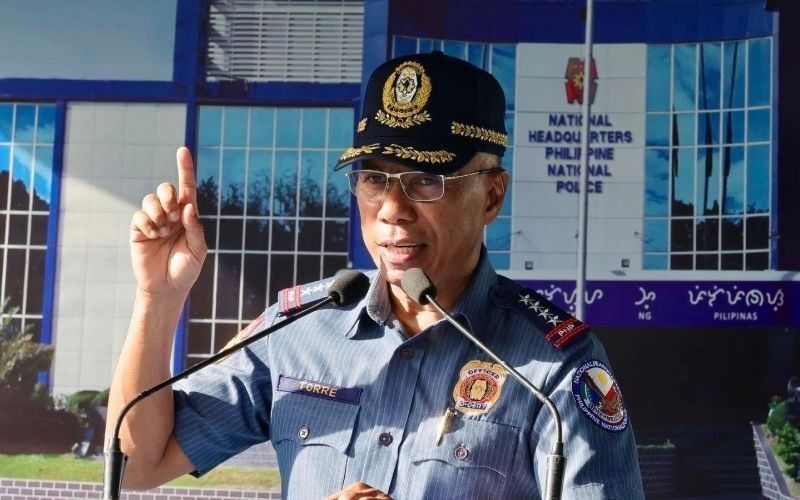
Upgrade to High-Speed Internet for only ₱1499/month!
Enjoy up to 100 Mbps fiber broadband, perfect for browsing, streaming, and gaming.
Visit Suniway.ph to learn
Cristina Chi - Philstar.com
June 16, 2025 | 7:11pm
MANILA, Philippines — A week before the opening of classes, President Ferdinand Marcos Jr. found himself inspecting school buildings his father built 50 years ago — structures that should have been replaced decades ago but still house Filipino students today.
But the aging "Marcos-type" buildings aren't the only relics still standing.
While the Philippines has expanded access and boosted enrollment since the 1970s, the same chronic shortages and quality issues that plagued schools then persist today: insufficient classrooms, unfilled teaching posts, and overcrowded conditions that force 60 students into spaces meant for 30.
The start of classes on Monday, June 16, brought those chronic problems back into focus as some 900,000 teachers welcomed their students into overcrowded, under-resourced classrooms.
Three different major teachers' groups used the occasion to blast the government for what they called "recycled" solutions to old education issues.
"[The] joy of a new school year is clouded — again — by long-standing crises in our education system," the Action and Solidarity for the Empowerment of Teachers (ASSERT) said in a statement on Monday, June 16.
The government's annual call for volunteers to spruce up schools through the Department of Education's Brigada Eskwela, while helpful, "is no match for the chronic shortages, dismal infrastructure, and deteriorating teaching and learning conditions that confront our schools year after year," it said.
"We are not ready," the group said.
First days dampened by chronic shortages
In Metro Manila — where some of the country's most densely populated school facilities can be found — several schools could not implement full face-to-face classes on Monday due to severe overcrowding, according to the the Alliance of Concerned Teachers - National Capital Region.
Some schools continue using blended learning modalities to manage overwhelming student numbers, according to ACT-NCR Union President Ruby Bernardo. "It's embarrassing that on opening day itself, some schools in Metro Manila can't even conduct full face-to-face classes because of congestion," she said.
"Reports from the ground confirm that this years opening is marred by the same unresolved issues," Teachers Dignity Coalition (TDC) said. Besides classroom shortages, the group also flagged the absence of learning materials aligned with the new senior high school curriculum being rolled out in select schools.
The group also criticized the lack of functional toilets and clean water — issues that Marcos himself saw in his inspections a week before in Malolos, Bulacan.

President Ferdinand Marcos Jr. inspects one of the restrooms at Barihan Elementary School in Malolos City, Bulacan, June 9, 2025.
Presidential Communications Office
"These are not new and yet, year after year, we face the same scenario," TDC said.
Across the country, DepEd faces a shortage of over 165,000 classrooms — the worst gaps in Metro Manila, Central Luzon, and Calabarzon regions.
Rather than rely solely on government to clear the backlog, DepEd Secretary Sonny Angara has vowed to tap the private sector through public-private partnership to build at least 105,000 classrooms.
“Uutangin 'yan pero 10 years to pay (We'll borrow that, but it's 10 years to pay),” Angara said.
'Focus on teachers'
ASSERT called on DepEd to improve teachers' working conditions. "Despite their crucial role, teachers are pushed to the brink by excessive paperwork, unpaid overtime, and a lack of mental health support," it said.
The group said DepEd's "promised deployment of administrative officers" — which are meant to unburden teachers of administrative tasks — "remains insufficient, leaving teachers with unchanged workloads year after year."
"Meanwhile, DepEd’s issuances to ease workload are often confusing, inconsistently implemented, or ignored altogether," it said.
TDC likewise flagged the "continued disregard for teacher welfare" and the minimal provision of benefits alongside "poor salaries."
"No curriculum, no infrastructure and no program will ever succeed if those tasked with implementing them are demoralized, overworked, underpaid and underappreciated," TDC said.
Transparency, gaining 'genuine insight'
All three groups called for comprehensive changes beyond what they characterized as superficial measures.
Besides renewing its call for DepEd to hire 30,000 new teachers annually and build 50,000 classrooms each year until 2028, ACT-NCR also called out DepEd for its directives that reportedly discourage teachers from discussing school problems with the media.
"We cannot solve our deep-seated problems by hiding them," Bernardo said. "We won't overcome the education crisis if we keep hiding the truth."
TDC also called on DepEd and Marcos to "go beyond mere acknowledgments and take decisive, concrete action."
"If the President is truly sincere, he should visit a public school at least once every quarter," TDC said. "[This is] not for show or media exposure, but to gain genuine insight and engage in meaningful consultation with teachers and learners."

 6 hours ago
1
6 hours ago
1



